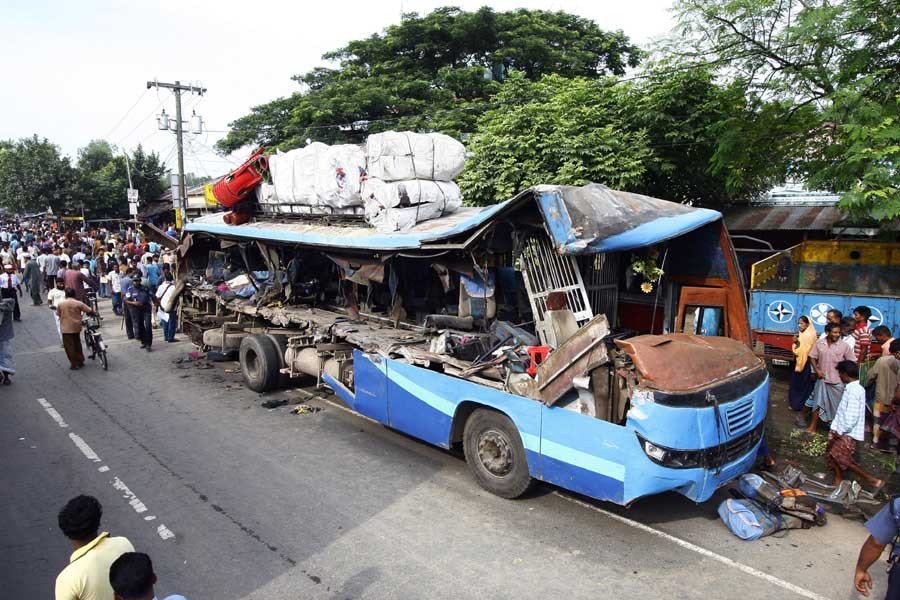Life in cities is continuously stalked by the spectres of accidents. People acquainted with the booby traps set in almost all segments of urban life can somehow escape these hazards. Some are perhaps born ill-fated. They never learn how to detect these traps and avoid them. Unexpected mishaps or those resulting in tormenting deaths continue to plague their temporal existence. Fatal hazards seemingly await them at every turn of their day-to-day life.
People with the penchant for confronting the adverse realities of life, or those not conceding defeat in the face of the mundane realities might call the above observations fatalistic. According to them, behind every mishap there is a cause. Nothing happens without a concrete reason. The sad death in the capital of a 7-year-old boy studying in Class One on November 9 while going to school was caused by the sudden collapse of a dilapidated wall. That the wall would come crashing down just at that time in the morning could be termed an act of destiny. But the act of digging a trench along the wall for utility work, and filling the long hole nonprofessionally, and leaving it hazardous cannot be left to fate only. By doing so, people try to escape their responsibility and the aspect of their commitments to duty. The so-called fatalists won't be convinced. They keep harping on the unfathomable acts of destiny --- an omnipotent force which defines every movement in human lives. At times, it appears that these people's palms are greased after every fatal mishap. They come up with their sermons just to let the defaulters off the hook.
The Greek playwrights and thinkers introduced their audiences to `fate' and 'destiny' as a philosophical interpretation of human lives. Dominantly pagan, the ancient Greek way of thinking was drawn to the fatalistic turns and twists, and, finally, the ends of life, due to their love for simplistic attitude towards life. The echoes of these thoughts' ramifications are heard in the later philosophical and theological observations of life. As time wears on, they get complex to more complex.
Let's get down to the blood-and-wails of accidents in Dhaka or greater Bangladesh. When it comes to accident deaths, with the perpetrators being exposed, few scopes are there for turning to the mystical philosophy of glorifying destiny. The irony is fate or destiny is still being called up again and again. It is true errant bus drivers keep getting away with their crimes of killing a road-crossing daughter and a mother in the cities. Apparently, half-hearted efforts are made to bring the culprits to justice. If they are imprisoned, the nature of their punishments, exemplary or lenient, remains unknown to the family members of the victims. It prompts them to turn to the one and only solace. The death of the mother holding the hand of her teenage daughter was predestined.
Starting from road accidents, a wall collapse, deaths from the fall of a single brick or the parts of a machine from the roof of an under-construction high-rise and scores of similar mishaps are occurring every day. Uncannily, a large segment of people in this society points the finger for these fatalities at destiny. The way things are turning out in this country, its social and community structures may, one day, find it hard to free themselves from the shadow of fate. It has been an age-old game designed by nonchalant crime perpetrators. These people and those who back them are equally harmful to society. Even deaths from lightning strikes, traditionally considered a punishment caused by the pronouncement of a curse, are being linked to earthly reasons. The felling of tall trees is one of them.
Sages have always stressed fate. But many of them have also underscored human efforts which can change destiny.


